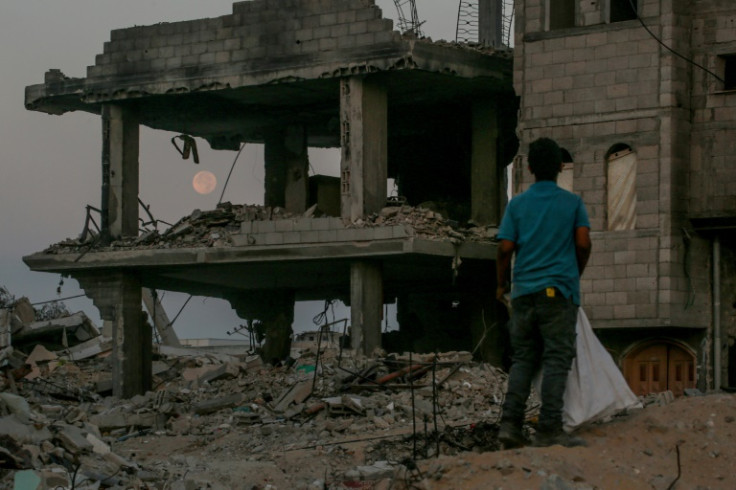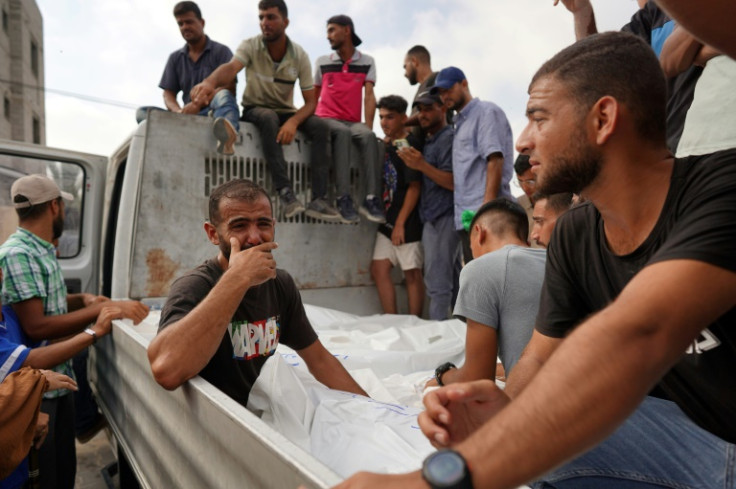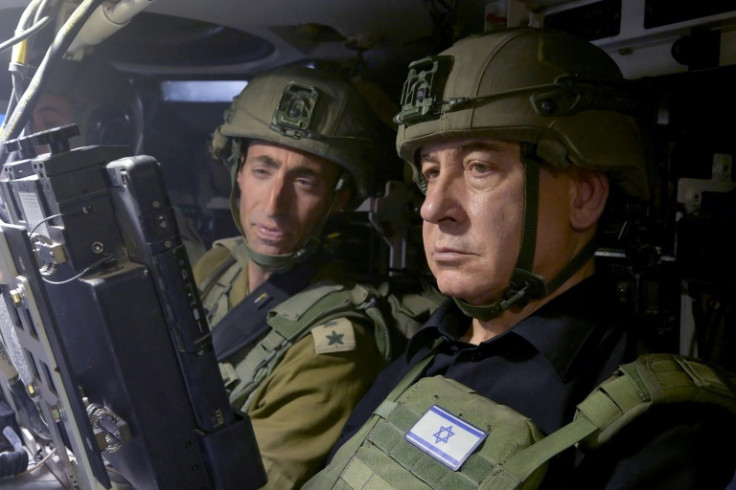Netanyahu Heads For Washington As Israel Orders New Gaza Evacuations

Israeli Prime Minister Benjamin Netanyahu departed for Washington on Monday to deliver a key speech, as the military ordered fresh evacuations in the southern Gaza city of Khan Yunis before sending in troops.
Netanyahu called the visit Monday a "very important trip" that comes at a time of "great political uncertainty", referring to US President Joe Biden's decision not to seek re-election and as Washington pushes Israel to seek a ceasefire deal with Hamas.
The premier is due to meet Biden on Tuesday and address the US Congress the day after. He departs Israel with significant domestic pressure to agree to a truce and hostage release deal in Gaza.
The nine-month-old war in the Palestinian territory raged on unabated on Monday, with Israel telling civilians in the eastern part of Khan Yunis to evacuate.
There was already intense shelling in the city on Monday, eyewitnesses said, while a medical source in the city's Nasser Hospital told AFP the toll from the bombing in Khan Yunis since dawn today has reached 26 dead. The health ministry had said there were 14 killed.
In a statement, the Israeli military said "due to significant terrorist activity and rocket fire toward the state of Israel... remaining in this area has become dangerous".
It said its forces were "about to forcefully operate" in the area and told Gazans to move to Al-Mawasi humanitarian zone.
Al-Mawasi has been the site of several deadly incidents in recent months and displaced Palestinians told AFP it was already full.
Youssef Abu Taimah, from the town of Al-Qarara in Khan Yunis, said his family headed to the humanitarian area but found no space.
"Even the sidewalks are full of people and tents. We are tired and fed up. Enough of this displacement and migration".
Ahmed al-Bayouk, a 53-year-old man from Khan Yunis, told AFP: "We barely settle for a few days before the army comes, bombs, displaces us and destroys more."
"Where should we go? Every place is at risk of bombing."
The war has placed unprecedented strains on Israel's most significant and closest alliance, with Netanyahu defying US pressure and launching a major ground operation in Gaza's Rafah earlier this year.
"Never before has the atmosphere been so fraught," said Steven Cook, a Middle East specialist at the Council on Foreign Relations.
"There is clearly tension in the relationship, especially between the White House and the Israeli prime minister," Cook said in a commentary.
The visit comes with the Gaza war again fuelling regional violence. Israel on Saturday attacked Yemen for the first time, in retaliation for a deadly drone strike on Tel Aviv by the Huthi rebels.
There were also further exchanges of fire between Lebanon's Hezbollah and the Israeli military over the weekend, as tensions remained high along the border.
The war was sparked by Hamas's October 7 attack on Israel which resulted in the deaths of 1,195 people, mostly civilians, according to an AFP tally based on Israeli figures.
Militants also seized 251 hostages, 116 of whom are still in Gaza, including 42 the Israeli military says are dead.
Israel's retaliatory campaign has killed at least 38,983 people in Gaza, also mostly civilians, according to data from the health ministry in the Hamas-ruled territory.
Washington has pushed for a ceasefire deal in Gaza, but Netanyahu, who faces domestic pressure to bring home the hostages taken in the October 7 Hamas attack, has insisted that increased military pressure on the militants is the best route to a deal.
"This double pressure is not delaying the deal -- it is advancing it," Netanyahu told troops in Gaza on Thursday.
On Sunday, the premier's office said he was sending a negotiating team for new talks on a truce deal, though it was unclear where the team would go.
Egypt, Qatar and the United States have been working unsuccessfully for months to secure a deal between Israel and Hamas.




© Copyright AFP 2025. All rights reserved.





















